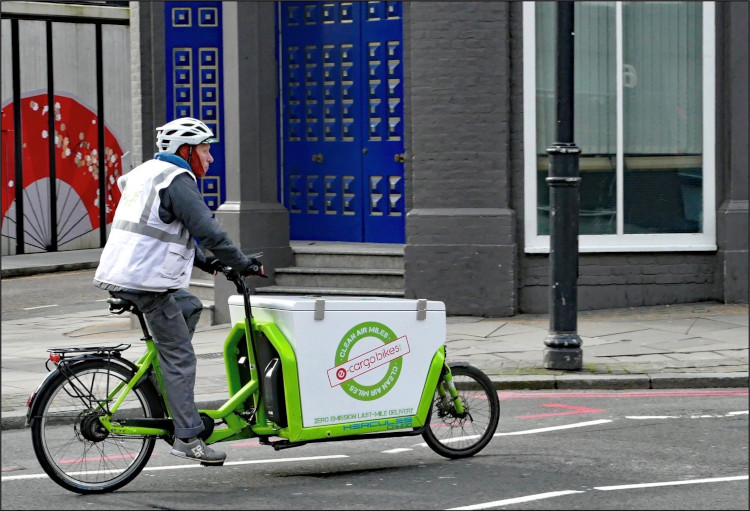TfL claims cargo bikes could replace 1/6 of van deliveries in central London
Posted on in Business News , Cycles News
A sixth of deliveries in central London could be done by cargo bike by 2030, according to Transport for London.

As reported by the London Evening Standard, TfL’s first cargo bike action plan sets out how it plans to work with local authorities and the freight sector to promote firms to switch from vans to the purpose-built bikes and cut emissions.
The idea is for the bikes, which are fitted with electric “pedal assist” devices, to be used for “final mile” deliveries to shops and homes.
They are likely to be quicker in congested areas than vehicles and can prove particularly useful in preventing the growth of online shopping resulting in more vehicle emissions that damage the environment. Some 26% of UK retail sales were made online last year.
Will Norman, London’s walking and cycling commissioner said: “Cargo bikes are no longer a niche concept, and they can be real game changers when it comes to delivering freight and servicing trips.
“Not only do they provide environmental benefits by not contributing to air pollution, they also make journeys more efficient and present a much lower risk of danger to people walking and cycling than vans and HGVs.”
The action plan, launched at the National Cargo Bike Summit, suggests that cargo bikes could replace up to 17% of van kilometres in central London by the end of the decade.
At present, e-cargo bikes account for 6% of delivery mileage in central London. But the plan warned: “Businesses unfamiliar with cargo bikes will need to be convinced that they are suitable, viable in the long-term and can meet their service needs.”
The plan recommends:
* Developing a London safety standard for cargo bikes
* Building “micro-hubs” and parking for the bikes
* Monitoring key cargo bike routes
* Ensuring capacity for cargo bikes when designing future TfL cycle schemes
* Promoting cargo bikes alongside low traffic neighbourhoods (LTNs) and other schemes to tackle pollution
* Helping businesses to switch to cargo bikes
On safety, the action plan states: “Cargo bikes need to be operated in a safe and considerate way. They are larger and heavier than other cycles and riders require additional skills.
“Concerns about the personal safety of the rider, for example secluded areas, poor lighting, and antisocial behaviour present barriers, especially for female riders. Aggressive and close passing by motorists on roads is another concern.”





















